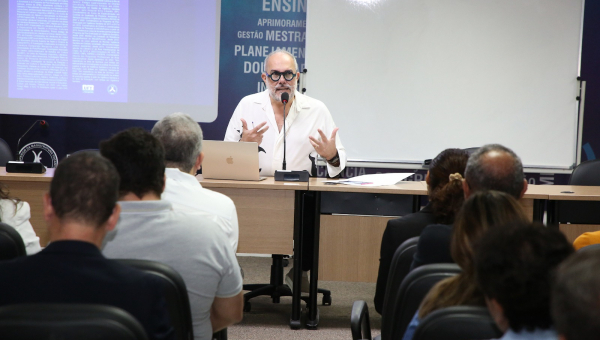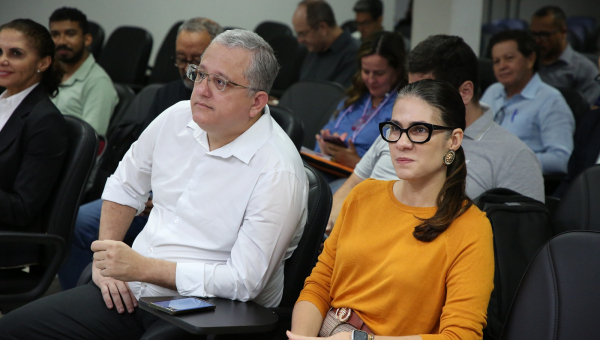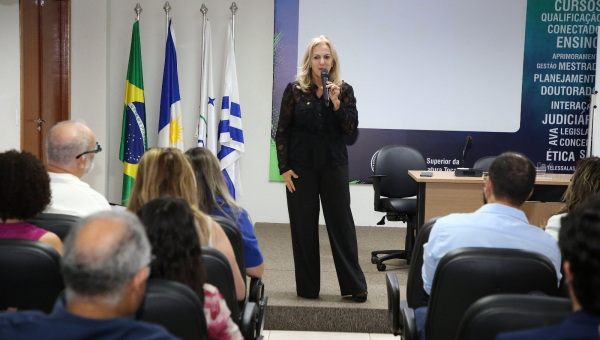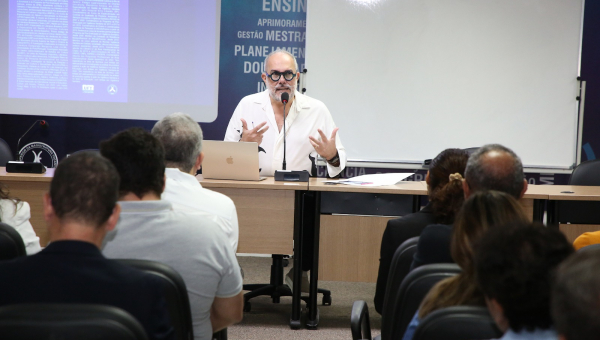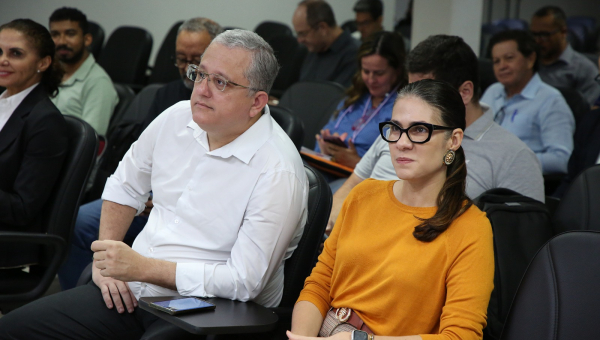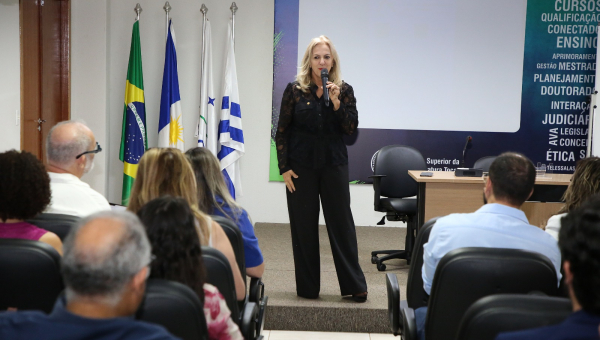
On August 4th and 5th, the Master’s and Professional Doctorate Program in Judicial Provision and Human Rights (PPGPJDH) of the Federal University of the state of Tocantins (UFT) and the Superior School of the Judges of the State of Tocantins (Esmat) the CAPES-PPGPJDH Interdisciplinary Meeting. The program brought together professors, students and coordinators of stricto sensu programs from UFT and UFT/Esmat, as well as representatives of the Coordination for the Improvement of Superior Level Personnel (Capes).
The elected dean of the UFT, Maria Santana Ferreira dos Santos Milhomem; the dean of the Catholic University, Andrea Carla Alves Borim; and the vice-dean of the State University of Tocantins (Unitins), Darlene Teixeira Castro, also attended.
On the 4th, Professor Djalma Thürler gave a lecture on Interdisciplinarity and the political construction of knowledge, highlighting the importance of overcoming disciplinary fragmentation and incorporating interdisciplinary epistemology as an instrument of resistance and cognitive advancement.
According to him, the critical approach to the Eurocentric hegemony in science must be allied with the construction of contextualized, plural and politically legitimate "knowledge". By linking theory and practice, the speaker pointed out that interdisciplinarity, especially in the context of the PPGPJDH, represents a strategic axis to integrate Law, Social Sciences and Human Rights, contributing to a more critical and transformative academic training.
On the first day, professor Kátia Christina Leandro presented the lecture on Between metrics and meanings: what (and who) counts in the assessment of the 2025-2028 cycle of Capes. The exhibition addressed recent changes in the evaluation system, including the replacement of Qualis by a new procedure that combines bibliometric indicators of the journal and article.

Guidelines regarding the popularization of science, the Sustainable Development Goals (SDGs) and the centrality of interdisciplinarity in the training proposal were also discussed. The moment counted with comments from those present, which clarified doubts about the new model and discussed its impacts on academic production.
On the 5th, the programming was dedicated to an internal meeting among representatives of Capes, technical team of Esmat, coordination of the PPGPJDH and the Pro-Rectory of Research, Post-Graduation and Innovation of UFT. Among the guidelines, stood out:
- Operational issues: regulations and administrative procedures arising from the recent change to the associative modality of the program between Esmat and UFT;
- Post-doctorate: rules and possibilities of offering postdoctoral degree by the program;
- Quality and Evaluation: guidelines on the completion of the Sucupira Platform and sharing good practices of reference programs;
- Regional Impact: appreciation of the programs of the North Region and recognition of its strategic role in social development.
For Professor Tarsis Barreto, coordinator of the PPGPJDH, the face-to-face meeting with national reference professors such as Djalma and Kátia was a "unique opportunity" to update professors and students on the new guidelines and align performance strategies.
“Given the difficulty of moving high-level evaluators from Capes to the state of Tocantins, the unprecedented initiative reaffirms the fruitful partnership between Esmat and UFT and prepares the program for the demands of the quadrennial evaluation", he said.
According to Maria Luiza Nascimento, coordinator of Post-Graduation at Esmat, the availability of the coordinators of the Interdisciplinary Area of Capes to come to the state of Tocantins is the result of the credibility and seriousness of the School and the program, and it represents a fundamental step for the consolidation and improvement of academic, scientific and training activities developed in the context of Esmat and UFT.




